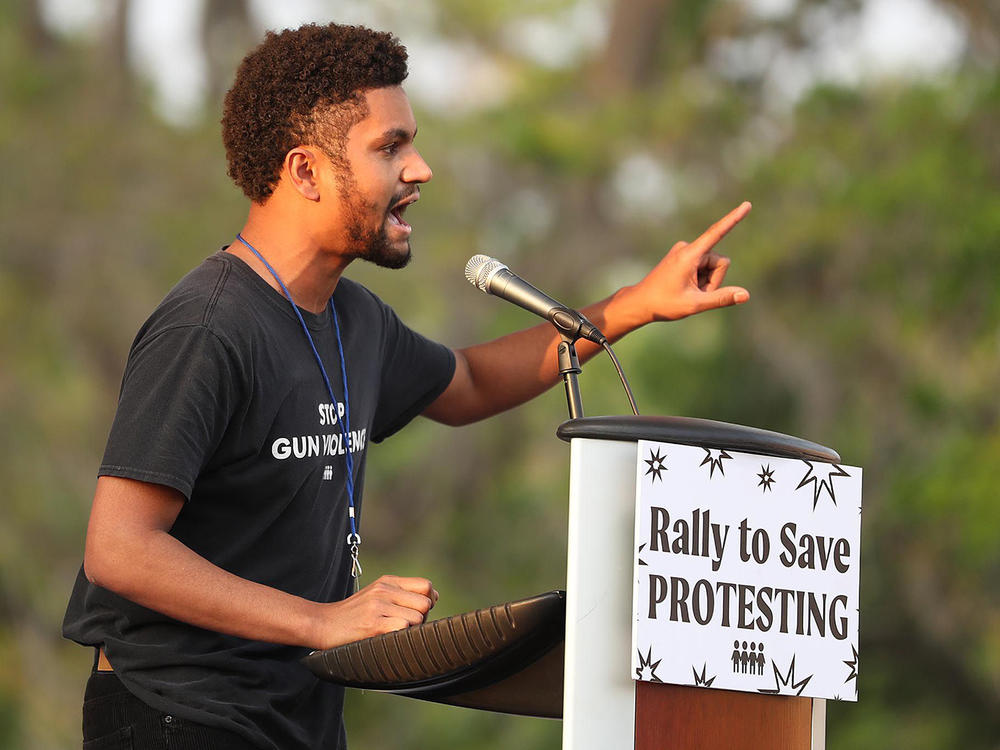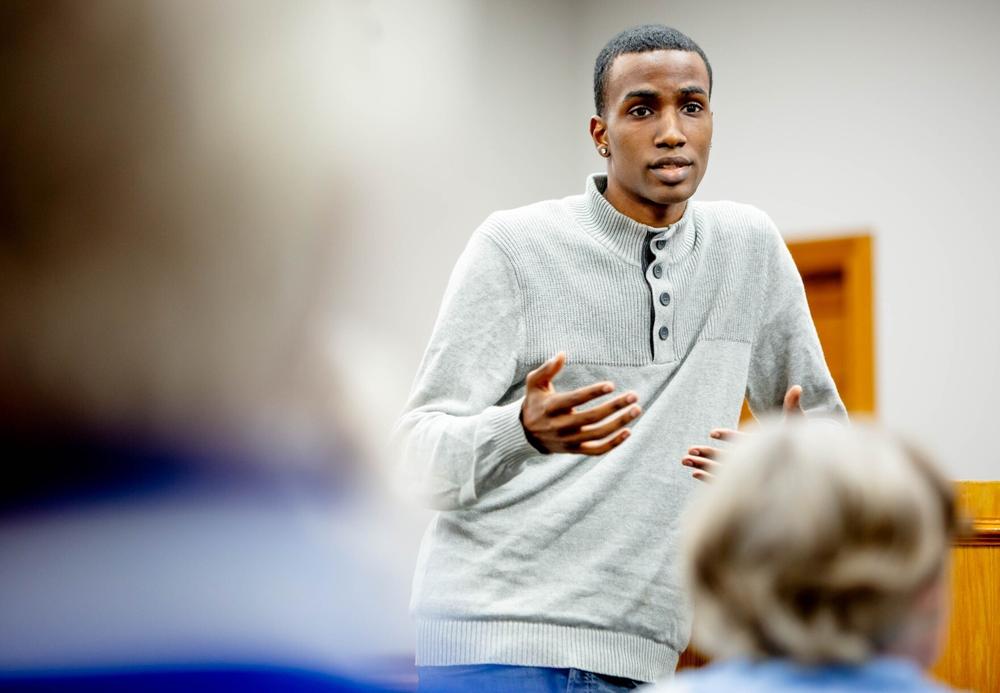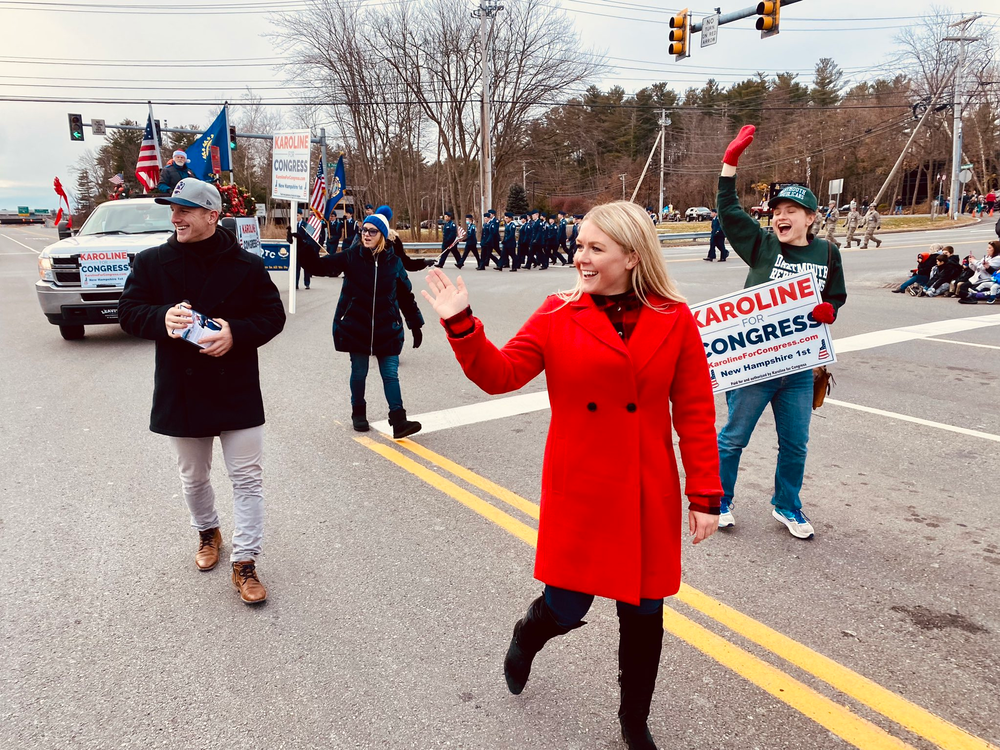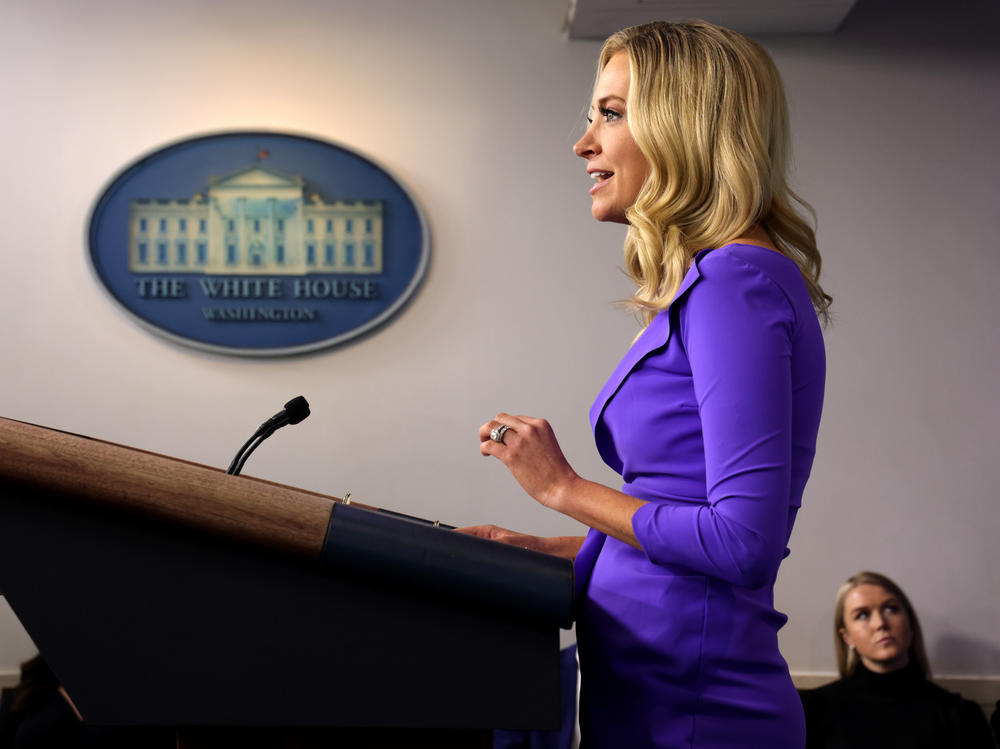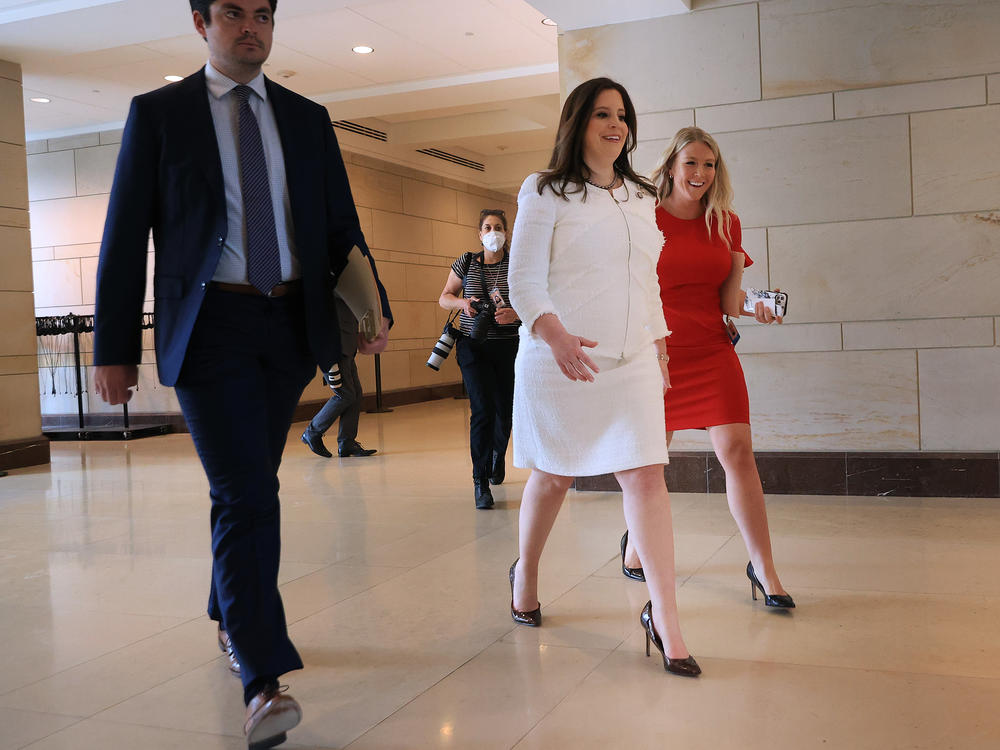Section Branding
Header Content
The first Gen Z candidates are running for Congress — and running against compromise
Primary Content
It isn't hard for Maxwell Alejandro Frost to name political moments throughout his childhood that have stuck with him.
"Turning on the TV and seeing a bunch of people sleeping outside of Wall Street talking about something called 'wealth inequality' – seeing that in elementary school," Frost said.
"Growing up learning that 30 minutes away from me, a kid that looked like me who was wearing a hoodie was murdered for being Black, Trayvon Martin, and seeing the outrage after that," he added.
Frost is running for Congress in Florida's 10th Congressional District, an open and solidly blue seat containing parts of Orlando – he's 25 years old, the minimum age to serve in the U.S. House.
He's also part of Generation Z – which the Pew Research Center defines as anyone born between the years 1997 in 2012 – and, if elected, would potentially be the first Gen Z member of Congress. The 2022 midterm cycle marks the first time in 16 years that Millennials are not the youngest generation able to run, raising questions about how Gen Z will approach Washington.
For Frost, his roots are in organizing, working as an activist since the Sandy Hook massacre in 2012 and most recently serving as the national organizing director for March For Our Lives, a youth-led group advocating for increased gun control policy. He's also a survivor of a separate incident of gun violence.
A generation shaped by upheaval
He says that Gen Z has a new way of approaching politics, given this generation has come of age during such a volatile period in American history.
"Our generation has been born into a lot of trauma and a lot of civil unrest around people being frustrated with things. And I think because of that, our generation naturally thinks about things in a bit of a different way," Frost said.
In the Saint Louis suburbs, 25-year-old Ray Reed is also breaking from the traditional mold. He's an organizer and former Democratic campaign staffer vying to oust Republican Rep. Ann Wagner in Missouri's 2nd Congressional District, and he pushes back against those who say he should start in local politics.
"The cynics kind of say, oh, he's too young, he's too untried, maybe if he were to spend, a few terms in Jeff[erson] City, maybe then he'll be ready to run for Congress. Which is really just political talk for let's get him in our system. Let's teach him how to play the game our way. And then if we say he's ready, he can run for a higher office," Reed said.
He says cynics cast him out as the risky pick.
"I think the real risk is to nominate the same type of Democratic candidates election after election after election and somehow expect a different result," he added.
Both Reed and Frost are progressives, honing in on issues like curbing gun violence, passing the Green New Deal and canceling student debt.
After the Supreme Court decision overturning Roe vs. Wade, both candidates expressed outrage over the ruling and posted photos and videos of protests they attended.
Reed also tied the decision back to Gen Z voters.
And while Frost and Reed are issue-oriented, there's no denying that age is part of their campaigns.
To Frost, the potential to make history as the first Gen Z House member plays more of a symbolic role.
"Yes we march, yes we engage in mutual aid, yes we engage on social media, and now we're running for office because we believe that we are prepared to be in the rooms and to be the voice for our communities and we can do that and young people should be allowed," he said.
Though Frost faces a challenge from his primary opponent, state Sen. Randolph Bracy, he has picked up a slew of high-profile endorsements, including from progressive leaders like Sen. Elizabeth Warren, D-Mass., and Rep. Pramila Jayapal, D-Wash. He's also got the backing of the Congressional Progressive Caucus PAC and the gun control organization Giffords.
What propels young candidates to run?
Frost and Reed's drive makes sense to Amanda Litman, a Millennial and the CEO of Run for Something, an organization that supports first-time Democratic candidates.
"You don't run for office as a 25-year-old because it is your next step in your career or it is the thing you've been planning for since you were a kindergartener or a college president," Litman said. "You run because there is a problem that is so fiercely driving you that you can't imagine doing anything else with your time," she added.
But this passion isn't just found among Democratic candidates – Karoline Leavitt is a fierce conservative running for Congress in New Hampshire's 1st District, a toss-up seat currently held by Democratic Rep. Chris Pappas.
Leavitt turns 25 in August, making her eligible to serve in Congress by next January.
"It's a very one-sided culture that we live in," Leavitt said, "How do we break through that mold? It's by electing young people to office that can resonate with these voters, have a platform at the national stage, that can show them ideas, policies, values that they're not hearing elsewhere at all."
Leavitt is already a vetted GOP staffer, working in the Trump administration as an assistant press secretary. Most recently, she served as the spokeswoman for Millennial Rep. Elise Stefanik, R-N.Y., who made history in 2014 as the youngest woman ever elected to Congress at that point. Leavitt is also endorsed by Stefanik, along with Texas Sen. Ted Cruz and Rep. Madison Cawthorn, N.C.
Though Gen Z's early voting trends are decidedly liberal, Leavitt hopes her campaign will energize young conservatives and steer voters away from progressive ideas she argues are too extreme.
"I think some of these more progressive candidates are just a reflection of the system that exists and it's the exact system I'm trying to fight against," she said.
From the opposite end of the political spectrum, Frost shares a similar fighting attitude when envisioning how he would work in a bitterly divided Congress.
"We come to the negotiating table not already at the compromise, which is usually what Democrats tend to do," Frost said. "I think this is part of the reason why the Republican Party has these long-term plans that a lot of times come to fruition," he added.
The Gen Z approach to politics diverges from Millennials
This determination to stand by your values shows an apparent deviation from the Millennial generation who came to Congress during the Obama presidency, according to Kristin Soltis Anderson, a conservative pollster and strategist — who's also a Millennial.
"The frame has shifted from, 'I'm going to bring about that change by being someone who looks for opportunities to work across the aisle,' and more, 'I'm going to disrupt the institutions and systems that are allowing the other side to continue to prevail,'" she said.
But coming to Congress and disrupting the institution isn't received the same way by Democrats compared to Republicans.
"It's very striking that while the Democratic Party does better among younger voters, they don't seem to have cornered the market on elevating younger candidates," Anderson said.
To Litman, this is where Democrats have a big problem, and she points to the age breakdown among House leadership in each party.
"There is really no incentive for older folks in Congress to step aside and let a younger generation lead," Litman said, "because the longer you serve, the more likely you are to get seniority within a committee."
Unlike on the Democratic side, Republicans have started elevating younger members. Last year, Stefanik moved up in GOP ranks, becoming the Chairwoman of the House Republican Conference, and bringing the average age of GOP leadership down to 55.
On the Democratic side, Millennial trailblazers remain left out of leadership, and the average age is 71.
This age disparity between parties prompts Anderson to argue that neither side has a real leg up right now.
"I don't think either party has a dramatic advantage on elevating Generation Z voices in elected office at this moment, and that's despite the fact that Democrats do have an advantage among those voters at the ballot box," she said.
While both Democratic and Republican prospects with future Gen Z members remain unclear, the inaugural class running this midterm cycle forges onward towards their primaries.
Reed's match-up in Missouri is set for Aug 1., Frost's in Florida is Aug. 23 and Leavitt's in New Hampshire is Sept. 13.
Copyright 2022 NPR. To see more, visit https://www.npr.org.
